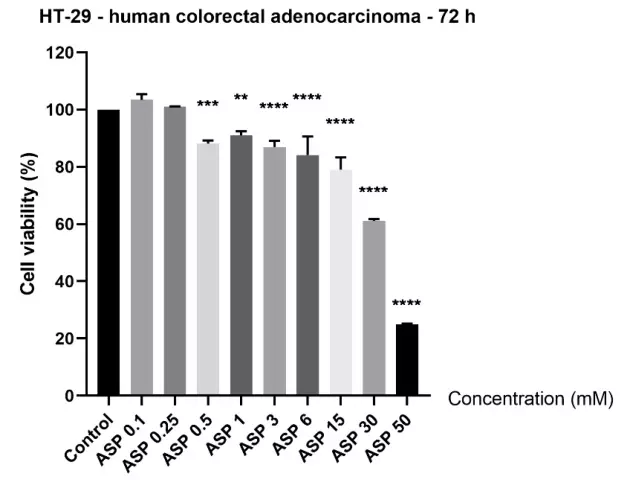- Author Rachel Wainwright wainwright@abchealthonline.com.
- Public 2023-12-15 07:39.
- Last modified 2025-11-02 20:14.
Three Mersey
Instructions for use:
- 1. Pharmacological action
- 2. Pharmacokinetics of Mercy
- 3. Dosage of Mercy and method of administration
- 4. Indications
- 5. Contraindications
- 6. Overdose of Mercy
- 7. Side effects of Mercy
- 8. Mercy drug interactions
- 9. Lactation
- 10. Conditions and shelf life of Mercy

Combined three-phase contraceptive, for internal use. Active ingredients: ethinylestradiol, desogestrel. Excipients: povidone, D, L-α-tocopherol, colloidal silicon dioxide, stearic acid, potato starch, lactose monohydrate. The shell consists of: macrogol, hypromellose, titanium dioxide, talc.
pharmachologic effect
The Tri Mercy effect is based on various factors, the main of which is the inhibition of ovulation. In addition to the contraceptive effect, combined oral contraceptives have a number of other positive effects. The regularity of the menstrual cycle they produce results in less painful periods, with less bleeding. This in turn reduces the incidence of iron deficiency anemia. The use of combined oral contraceptives with a high level of hormones leads to a decrease in the risk of developing: fibrocystic mastopathy, ovarian cysts, inflammation of the pelvic organs, ovarian cancer, ectopic pregnancy.
Pharmacokinetics Three Mercy
Desogestrel, when taken orally, is completely and rapidly absorbed with subsequent conversion into etonogestrel. Etonogestrel binds to globulin, which binds sex hormones. The bioavailability of the drug is 62-81%.
The drug is completely metabolized by the pathways of steroid hormone metabolism. An interaction between concomitantly taken etonogestrel and ethinyl estradiol was not found. The final half-life of the drug occurs after 30 hours. The drug and its metabolites are excreted in urine and bile, in a ratio of 6: 4.
Globulin, which binds sex hormones, affects the pharmacokinetics of desogestrel. Daily intake leads to an increase in the level of the drug in the blood plasma, by 2-3 times.
Ethinyl estradiol, when taken orally, is completely and rapidly absorbed. Bioavailability, as a result of metabolism and presystemic conjugation, with primary passage through the liver, is approximately 60%.
The concentration of ethinyl estradiol in the blood decreases in two stages. The final stage is characterized by a half-life of the Three Mercy in about a day.
A stable level of drug concentration is achieved after 3-4 days of regular use.
Three Mercy dosage and method of administration
The tablets are taken according to the scheme indicated on the package, every day at the same time, it is possible with liquid. The course of daily intake lasts 21 days. Then a week break is made, during which menstrual bleeding occurs.
Provided that there was no previous intake (in the last month) of hormonal contraceptives, taking Three Mercy should be started from the first day of the menstrual cycle, but no later than 5 days from the beginning of the cycle. If there is a delay in the start of taking, it is recommended to combine the intake of Three Merces with other non-hormonal methods of contraception in the first week.
After an abortion done in the first trimester of pregnancy, you can immediately start taking Three Mercy. In this case, there is no need to use other methods of contraception.
After an abortion in the II trimester, or childbirth, it is recommended to start taking the drug in 21-28 days. When you start using the drug after the specified period, in the first seven days, it is recommended to combine it with barrier methods of contraception.
If you miss taking a pill once, in case of a delay of no more than 12 hours, the effectiveness of contraception does not decrease. You should take the pill as soon as possible and continue taking it at the usual time.
If the delay in taking the drug is more than 12 hours, the reliability of the drug's contraceptive effect decreases. According to the Three Mercy instructions, in order to achieve a reliable contraceptive effect, the drug must be taken daily for 7 days.
To deliberately delay your period, you can use white tablets from another Three Mercy pack in combination with the usual regimen. In this case, the menstrual cycle can be delayed for up to 7 days.
Indications
The drug is prescribed as a contraceptive to prevent pregnancy.
Contraindications

Combined oral contraceptives should not be taken for the following diseases, and if they are diagnosed during administration, it should be stopped immediately.
• Venous or arterial thrombosis;
• The presence of clinical manifestations of vascular thrombosis;
• Diabetes mellitus with vascular complications;
• Presence of risk factors for arterial or venous thrombosis;
• The presence of severe liver disease, with a constant decrease in its function;
• Benign or malignant liver tumors;
• Vaginal bleeding of unclear origin;
• Pregnancy;
• Hypersensitivity to the drugs that are part of the Three Mercy.
Three Mercy overdose
In case of an overdose of Three Mersey, no reviews were received indicating serious complications. Symptoms possible in case of an overdose: nausea, vomiting, in young women - bloody discharge. In case of an overdose, symptomatic treatment is recommended, there are no antidotes.
Side effects of the Three Mercy
Possible side effects can manifest themselves in the form of: soreness of the mammary glands, the appearance of secretion, migraines, chest pain, depression, changes in libido, intolerance to contact lenses, vomiting, nausea. However, a direct relationship between taking Tri Mercy and the side effects mentioned above has not been established.
Drug interactions Three Mercy
The combination with some drugs can cause heavy bleeding and reduce the effectiveness of oral contraceptives. Similar effects have been reported with barbiturates, rifampicin, carbamazepine, and are also possible with griseofulvin and oxcarbazepine. This is due to the induction of these drugs of liver enzymes involved in the metabolism of combined oral contraceptives. The effect can last up to one month after discontinuation of the drug.
According to the reviews received, Tri Mercy may reduce its effectiveness when combined with certain antibiotics like ampicillin and tetracycline. When taking these antibiotics, for the entire period of admission plus seven days, a barrier should be introduced in addition to hormonal contraception, and when taking rifampicin, another plus 28 days after the end of admission.
Lactation
In the large-scale studies conducted, the risk of negative effects on children whose mothers used oral contraceptives before pregnancy, and also by mistake during pregnancy, was not established. Hormonal contraceptives can affect the amount and composition of milk, so their use during lactation is not recommended.
Conditions and shelf life Three Mercy
Shelf life 3 years. Store in a dark, dry place out of reach of children. Storage temperature from 2 to 30 ° С.
Information about the drug is generalized, provided for informational purposes only and does not replace the official instructions. Self-medication is hazardous to health!






